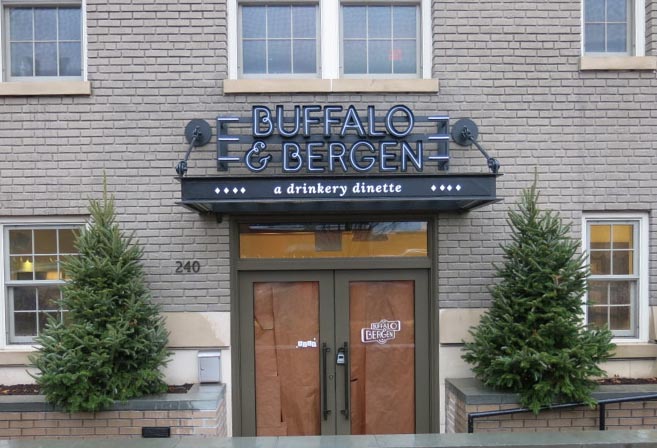The coronavirus has brought out the best and the worst in landlord-tenant relationships. At a time when restaurants are limited to carryout and delivery or shut down entirely, restaurateurs, chefs, bakers and bar owners are trying to piece together a survival plan during a pandemic with no obvious end date: They’re looking at microgrants, Small Business Administration loans, donations from regulars, pivots into improvised grocery stores, anything to keep the lights on. But one of the largest fixed costs for almost every food establishment is rent, so many operators are looking to their landlords for a break. Any kind of break.
Buffalo & Bergen’s story, which is highlighted in this article, is one that we are familiar with as Neighborhood Retail Group represents the landlord and manager, Massachusetts Avenue Properties.
“Not a lot of people in the world are ever going to do something like that for you,” Gina Chersevani, founder and owner of Buffalo & Bergen, which opened a bricks-and-mortar location on Capitol Hill in December says. “Other landlords that I know have tons of money . . . They’re not doing anything.”
As of today, the plan is to forgive six months of rent, Korsvall, manager of the property, said. If this pandemic stretches out longer, he’ll work out a plan with Chersevani, that benefits both parties.
“We could do this,” Korsvall told The Post. “I don’t expect that every landlord should do what we did. For us, it was the right business decision, and I don’t want to project that this is the model and everybody should do that. … Some landlords could be in worse shape than their tenant.”
The source of this generosity may surprise you: Massachusetts Avenue Properties is an affiliate of the Heritage Foundation, the conservative think tank known for its fiscal restraint and its influence with Republican and Democratic administrations. Korsvall says the foundation knew about his decision to waive rents for the tenants under the Massachusetts Avenue banner, but he had the authority to make the call himself.
Korsvall says that, in the long run, it would cost a landlord more money to find a new tenant, and wait out another permitting and build-out process, than to help a current tenant get through the upheaval. Besides, there’s no guarantee that new tenants, or the people who invest in them, will have the stomach to launch a business in this atmosphere.
“If we forgo six months or more and we have a successful tenant for the next 10 years, that was a no-brainer,” the landlord says.
